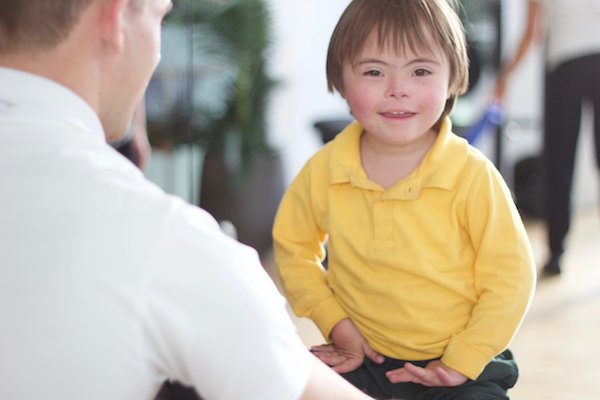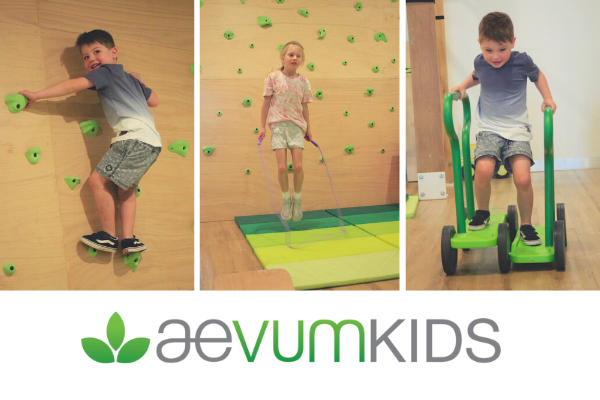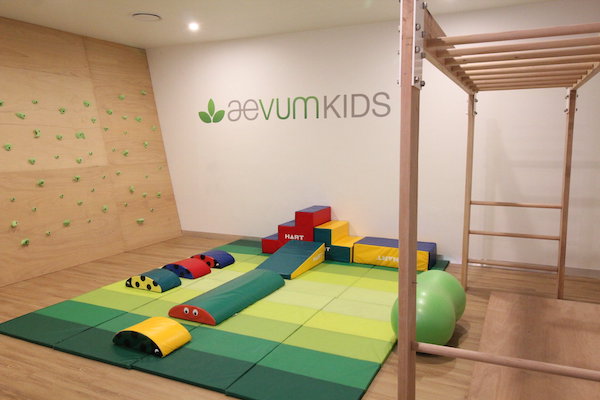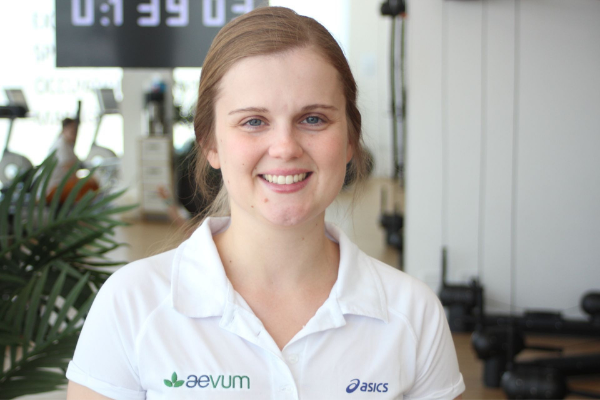Physiotherapy can have a huge impact on the physical and mental wellbeing of a child on the NDIS. Not only can it help them reach key milestones, but it also provides a fun and safe space for them to develop strong bonds, outside of their family.
The experts at Aevum Physiotherapy, a registered NDIS physiotherapy provider, understand how the NDIS works and believe that children have different needs to adults. Their NDIS physiotherapy offering has allowed many in the Sutherland Shire to improve their lives through the use of specialised accessible equipment and an experienced clinical team.
We sat down with them to hear more.
What conditions can physiotherapy help with?
Physiotherapy can help with a large range of conditions including genetic conditions (such as Down syndrome and Williams syndrome as well as any lesser known and rare genetic conditions), neurological conditions (such as Cerebral Palsy or acquired brain injuries) and other developmental conditions (such as Developmental Coordination Disorder, Autism Spectrum Disorder and ADHD).
It can also help children with global developmental delay, hypermobility, low muscle tone, those who have difficulties with coordination and motor planning, and children who are prone to trips and falls.
Early physiotherapy intervention can also assist with the development of gross motor skills such as rolling, sitting, crawling and walking for babies and toddlers who are demonstrating delay.

What is the NDIS? What is Early Childhood Early Intervention (ECEI)?
The NDIS is the National Disability Insurance Scheme, which provides funding to support children and adults with a disability in improving their participation, inclusion and access to the community. This is achieved through engaging with therapy providers, such as physiotherapists, to access tailored support to achieve their NDIS goals. Providers will use tools like Iinsight’s NDIS CRM to help provide care and support.
The ECEI is a program within the NDIS which provides support to children under seven years of age who have delayed development or a disability. It emphasises the importance of early intervention in maximising the benefits of neuroplasticity. Accessing ECEI supports, if appropriate for your child, is something that your physiotherapist at Aevum Kids can assist you with.
How can physiotherapy help children who are NDIS/ECEI participants?
Physiotherapy can help children who are NDIS participants in achieving a wide variety of physical goals including improving their motor skills such as strength, endurance, balance and coordination. It can help your child advance in swimming and participation in sports and at school. It can also help your child increase their independence by helping them achieve independent sitting and mobility through crawling or walking.
Your physiotherapist can assist with equipment prescription, including orthotics, walking frames, and specialised clothing options to assist your child’s body alignment and muscle activation.
At Aevum Kids we offer standardised assessment for monitoring development at all ages and gross motor skill achievement levels. We also believe in working within a multidisciplinary team and will aim to link you with other services such as speech pathologists, occupational therapists and relevant medical/allied health specialists, if required.
What services do you provide?
Depending on your child’s goals we offer:
- In-clinic appointments: these take place in our paediatric therapy gym in our Kirrawee clinic.
- Hydrotherapy: this is physiotherapy that occurs in a pool of therapeutic temperature. It is different to a swimming lesson, and is beneficial for building strength and working on skills that are too difficult to complete on land (e.g., for a child who can’t hop on land, this skill can be practised in the water).
- School/pre-school visits (NDIS only): this allows us to help your child achieve goals around safely navigating their environment and developing skills relating to play-equipment. Sessions at school also enable your physiotherapist to support and facilitate inclusion in activities with peers. We work with your child’s teachers/educators to support their manual handling skills when required, and can provide positioning programs to improve your child’s comfort at school while also gaining therapeutic benefits.
- Home visits (NDIS only): Similarly to school visits, home visits can be useful to help integrate skills learnt in-clinic into your child’s home environment.
- School holiday group classes: Aevum Kids runs themed group classes in the school holidays, including dance, ball skills/soccer, bike riding and circus classes. This is to help your child build their gross motor skills in a supportive, social environment.
- Serial casting: This is beneficial for children whose goals include improving or maintaining range at their ankle joints or managing toe walking. At Aevum Kids we use turtle braces, which are a new alternative to traditional casting. These braces are remouldable and can be taken off and on to allow for showering/bathing and checking for pressure areas.
- Intensives: Aevum Kids runs intensive programs in the school holiday. An intensive is when your child attends physio for 1-2 hours every day for 1-2 weeks. This is a highly evidenced form of therapy which can give your child large boosts towards achieving their physio goals.
What equipment and facilities will my child have access to?
At Aevum Kids we have a purpose-built kids’ gym with a wide range of equipment from a rock climbing wall and monkey bars to obstacle courses, balls, hula hoops and bikes. Our kids’ therapy gym also includes specialised equipment to assist with early motor milestone development, such as a harness system for standing and stepping practice, specially shaped cushions for sitting practice, and a sit-to-stand frame to assist with learning to stand up. We also have many consumable and equipment options to trial in our clinic, including walking and standing frames.
We have a wide variety of gym equipment for older children such as treadmills, free weights, weight machines and a pilates reformer. Our clinic has an Alter-G treadmill, which is an anti-gravity treadmill, allowing for walking practice where your child can focus on learning the movement required to walk without the need to support their own body weight.
The large range of equipment available means we have something to suit every child and every goal.
What can we expect on our first visit?
The primary goal of your first visit will be to get to know your child, their interests and build rapport through play in our kids’ therapy gym. Your physiotherapist will gain information about your child’s history, development and therapy goals. A tailored physical assessment will take place, this usually involves observation of gross motor skills and a hands-on assessment of muscle length and tone.
If it sounds like Aevum Physiotherapy could help your child reach their NDIS goals, don’t hesitate to get in touch on (02) 8544 3231 or [email protected].


